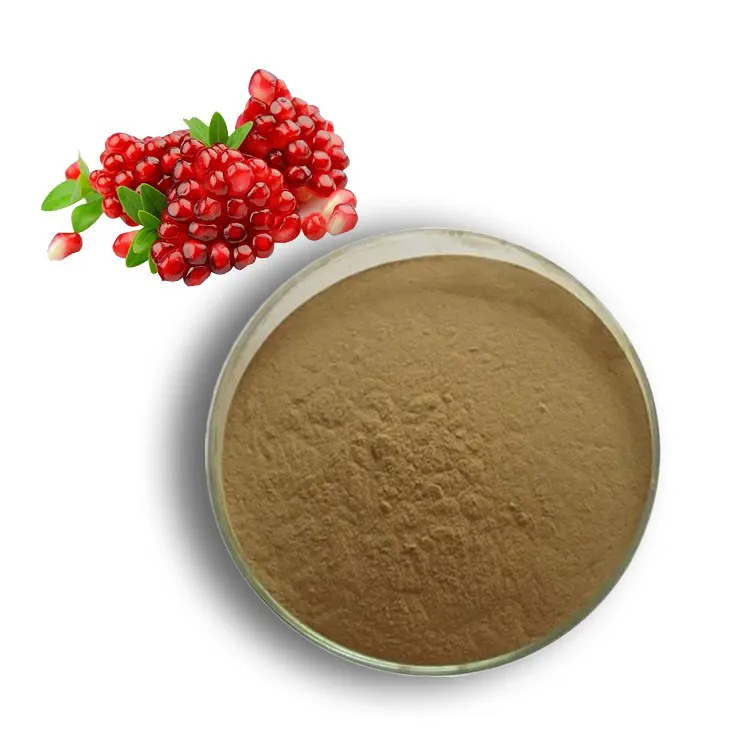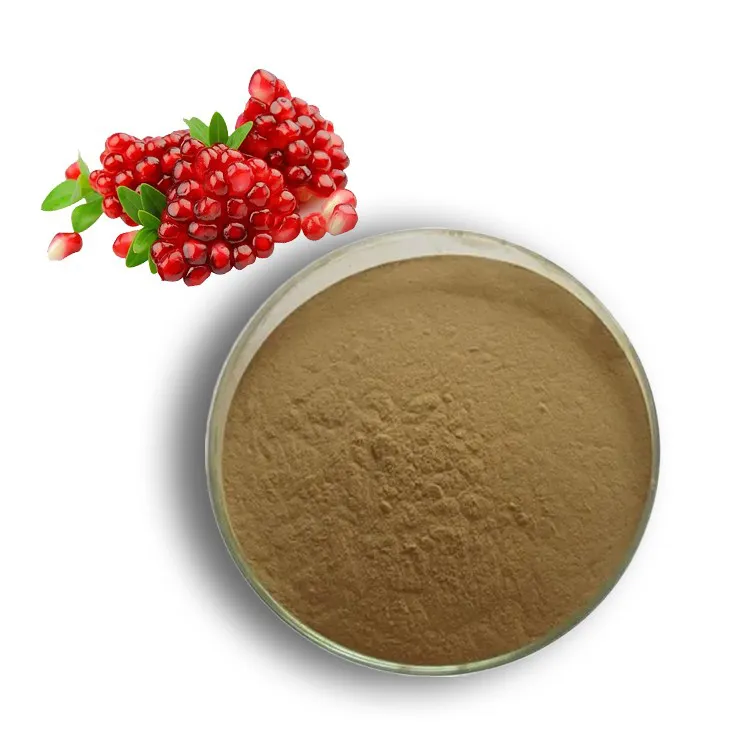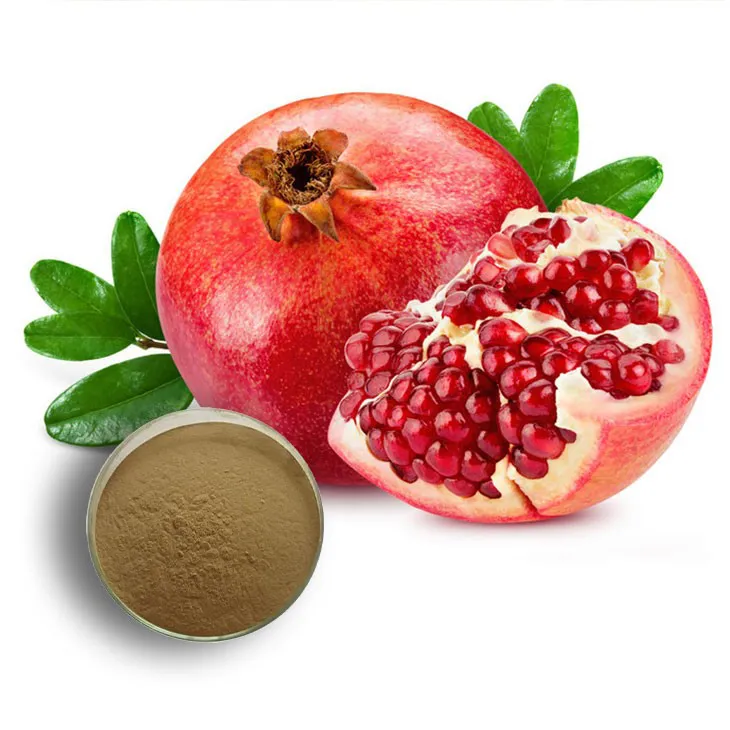- 0086-571-85302990
- sales@greenskybio.com
Is pomegranate extract beneficial for diabetes? Are these all safe and suitable for diabetic patients?
2024-11-12

1. Introduction
Diabetes is a chronic metabolic disorder that affects millions of people worldwide. Management of diabetes often involves lifestyle changes, medications, and sometimes the use of natural supplements. Pomegranate Extract has emerged as a potential supplement in the context of diabetes management. This article will explore whether Pomegranate Extract is beneficial for diabetes and whether it is safe and suitable for diabetic patients.

2. Pomegranate Extract and Its Components
Pomegranate extract is derived from the pomegranate fruit (Punica granatum). The fruit contains a variety of bioactive components, including:
- Polyphenols: These are antioxidants that have been associated with numerous health benefits. In pomegranates, polyphenols such as ellagic acid, punicalagin, and anthocyanins are present in significant amounts.
- Vitamins: Pomegranates contain vitamins like vitamin C, which is also an antioxidant and plays a role in overall health.
- Minerals: Minerals such as potassium are also found in pomegranates.

3. Role in Improving Insulin Sensitivity
3.1. Insulin Resistance in Diabetes
Insulin resistance is a key feature in type 2 diabetes. In insulin - resistant individuals, cells in the body do not respond properly to insulin, leading to elevated blood glucose levels. Pomegranate extract has been studied for its potential to improve insulin sensitivity.
3.2. Mechanisms of Action
Several mechanisms have been proposed for how pomegranate extract may enhance insulin sensitivity:
- Antioxidant Effects: The polyphenols in pomegranate extract act as antioxidants. Oxidative stress is known to be involved in the development of insulin resistance. By reducing oxidative stress, pomegranate extract may help cells respond better to insulin.
- Regulation of Inflammatory Pathways: Chronic inflammation is also associated with insulin resistance. Pomegranate extract has been shown to modulate inflammatory markers. For example, it may reduce the production of cytokines that are involved in the inflammatory response and thus improve insulin sensitivity.
- Interaction with Cellular Signaling Pathways: Pomegranate extract may interact with cellular signaling pathways involved in glucose metabolism. It could potentially enhance the activity of insulin - signaling molecules, leading to improved glucose uptake by cells.
3.3. Research Evidence
Several animal and some human studies have provided evidence for the beneficial effect of pomegranate extract on insulin sensitivity. In animal models of diabetes, treatment with pomegranate extract has been shown to lower blood glucose levels and improve insulin - mediated glucose uptake in tissues such as muscle and adipose tissue. In human studies, although the evidence is more limited, some small - scale trials have reported improvements in insulin sensitivity markers in subjects consuming pomegranate extract or juice.

4. Effects on Blood Glucose Levels
4.1. Glycemic Control
Maintaining stable blood glucose levels is crucial for diabetic patients. Pomegranate extract may contribute to glycemic control in several ways:
- Slowing Carbohydrate Digestion: Some components of pomegranate extract may inhibit enzymes involved in carbohydrate digestion, such as alpha - amylase. This can result in a slower release of glucose into the bloodstream, preventing rapid spikes in blood glucose levels.
- Enhancing Glucose Uptake: As mentioned earlier, by improving insulin sensitivity, pomegranate extract can facilitate the uptake of glucose by cells, thereby reducing blood glucose levels.
4.2. Comparison with Conventional Treatments
It is important to note that while pomegranate extract may have a positive impact on blood glucose levels, it should not be considered a replacement for conventional diabetes treatments such as metformin or insulin. However, it could potentially be used as an adjunct therapy. For example, in patients who have difficulty achieving optimal glycemic control with standard medications alone, pomegranate extract may provide an additional benefit.

5. Potential Side - Effects
5.1. Gastrointestinal Disturbances
One of the potential side - effects of pomegranate extract is gastrointestinal (GI) disturbances. This can include:
- Nausea: Some individuals may experience nausea after consuming pomegranate extract, especially if taken in large doses.
- Diarrhea: Pomegranate extract may also cause diarrhea in some people. This could be due to its effects on the digestive system, such as changes in gut motility or interactions with gut bacteria.
5.2. Drug Interactions
Pomegranate extract may interact with certain medications. For example:
- Blood - Pressure - Lowering Drugs: Pomegranate extract has been shown to have a mild blood - pressure - lowering effect. When combined with other blood - pressure - lowering medications, it could potentially cause an excessive drop in blood pressure.
- Anticoagulants: There is some concern that pomegranate extract may interact with anticoagulant medications, increasing the risk of bleeding. This is because some components of pomegranate extract may have anti - platelet activity.
6. Safety Considerations for Diabetic Patients
When considering the use of pomegranate extract in diabetic patients, several safety aspects need to be taken into account:
- Individual Variability: Different individuals may respond differently to pomegranate extract. Some diabetic patients may tolerate it well and experience beneficial effects, while others may be more sensitive to its side - effects.
- Quality and Dosage: The quality of pomegranate extract products can vary widely. It is important to choose a high - quality product from a reliable source. Additionally, the appropriate dosage needs to be determined. Taking too much pomegranate extract may increase the risk of side - effects.
- Medical Supervision: Diabetic patients should consult their healthcare providers before starting to use pomegranate extract. Their healthcare providers can assess their overall health status, current medications, and determine whether pomegranate extract is a suitable addition to their diabetes management plan.
7. Conclusion
In conclusion, pomegranate extract shows promise in terms of its potential benefits for diabetes, particularly in improving insulin sensitivity and contributing to glycemic control. However, it also has potential side - effects and may interact with certain medications. For diabetic patients, while it may be considered as a complementary approach, it should be used with caution under medical supervision. Further research is needed to fully understand its long - term effects and optimal usage in the context of diabetes management.
FAQ:
Question 1: How does pomegranate extract improve insulin sensitivity in diabetic patients?
Pomegranate extract contains various bioactive compounds such as polyphenols. These compounds may influence the signaling pathways related to insulin action. They might help cells in the body, especially muscle, fat, and liver cells, to respond better to insulin. For example, some polyphenols can reduce inflammation and oxidative stress, which are often associated with insulin resistance. By reducing these factors, the cells can more effectively take up glucose from the blood in response to insulin, thus improving insulin sensitivity.
Question 2: Are there any side - effects of pomegranate extract for diabetic patients?
While pomegranate extract is generally considered safe, some potential side - effects may occur. In some cases, it can cause digestive issues like nausea, vomiting, or diarrhea, especially when consumed in large amounts. Also, it may interact with certain medications that diabetic patients are taking. For example, if a diabetic patient is on blood - thinning medications, pomegranate extract, which also has some blood - thinning properties, may increase the risk of bleeding.
Question 3: Can pomegranate extract lower blood sugar levels directly?
There is evidence to suggest that pomegranate extract may have a hypoglycemic effect. The bioactive components in it may interfere with carbohydrate metabolism in the body. They could potentially slow down the absorption of glucose from the digestive tract or enhance the uptake of glucose by cells, thereby leading to a reduction in blood sugar levels. However, the extent of this effect can vary among individuals, and it should not be considered as a substitute for traditional diabetes medications without proper medical advice.
Question 4: How much pomegranate extract is safe for diabetic patients to consume?
The safe amount of pomegranate extract for diabetic patients can vary depending on factors such as overall health, body weight, and other medications being taken. In general, it is recommended to start with a small amount, such as 100 - 200 mg per day, and gradually increase while monitoring for any adverse effects. However, it is always best to consult a healthcare provider who can take into account the individual's specific situation and provide a more personalized recommendation.
Question 5: Does pomegranate extract have long - term benefits for diabetes management?
Some studies suggest that long - term consumption of pomegranate extract may have benefits for diabetes management. By continuously improving insulin sensitivity and potentially helping with blood sugar control, it may contribute to better overall glycemic control over time. Additionally, its antioxidant and anti - inflammatory properties may also play a role in preventing some of the long - term complications associated with diabetes, such as cardiovascular disease and nerve damage. However, more long - term research is needed to fully confirm these potential benefits.
Related literature
- The Effects of Pomegranate Extract on Insulin Sensitivity in Diabetic Patients"
- "Pomegranate Extract: Potential Benefits and Risks for Diabetes Mellitus"
- "Role of Pomegranate Extract in Blood Sugar Regulation in Diabetes"
- ▶ Hesperidin
- ▶ Citrus Bioflavonoids
- ▶ Plant Extract
- ▶ lycopene
- ▶ Diosmin
- ▶ Grape seed extract
- ▶ Sea buckthorn Juice Powder
- ▶ Fruit Juice Powder
- ▶ Hops Extract
- ▶ Artichoke Extract
- ▶ Mushroom extract
- ▶ Astaxanthin
- ▶ Green Tea Extract
- ▶ Curcumin
- ▶ Horse Chestnut Extract
- ▶ Other Product
- ▶ Boswellia Serrata Extract
- ▶ Resveratrol
- ▶ Marigold Extract
- ▶ Grape Leaf Extract
- ▶ New Product
- ▶ Aminolevulinic acid
- ▶ Cranberry Extract
- ▶ Red Yeast Rice
- ▶ Red Wine Extract
-
Yohimbine Bark Extract
2024-11-12
-
Lemon Juice Powder
2024-11-12
-
Echinacea Extract
2024-11-12
-
Sea buckthorn Juice Powder
2024-11-12
-
Senna Leaf Extract
2024-11-12
-
Agaricus Blazei Extract
2024-11-12
-
Aguaje Extract
2024-11-12
-
Bamboo Leaf extract
2024-11-12
-
Lavender Extract
2024-11-12
-
Wheat Germ Extract
2024-11-12





















